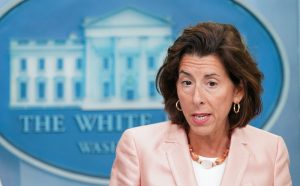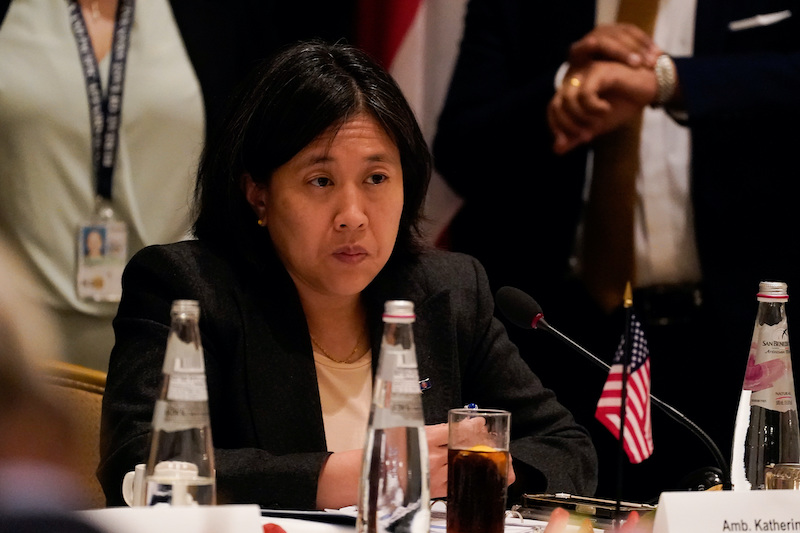Trade and commerce ministers from the United States and 13 Indo-Pacific nations are due to start talks on Thursday on the Biden Administration’s pan-Asian trade deal, known as the Indo-Pacific Economic Framework.
The negotiations, which will be led by US Trade Representative Katherine Tai and Commerce Secretary Gina Raimondo, are the first by the US in nearly a decade, but will not involve tariff reductions.
The talks in Los Angeles will seek to define a sweeping platform for market-driven economies to engage on trade and data flows, environmental and labour standards, supply chains and anti-corruption efforts.
President Joe Biden launched the Indo-Pacific initiative in May during a trip to Tokyo, but some critics questioned its value to participating countries.
ALSO SEE: China’s Trade Loses Momentum as Global Demand Drops
Not TPP 2.0
Washington has lacked an economic pillar to its Indo-Pacific engagement since former president Donald Trump quit the 12-country Trans-Pacific Partnership trade deal (TPP) in 2017, leaving the field open to China to expand its regional influence.
More than two years of TPP negotiations led to an agreement in 2015, but the US Congress failed to ratify it as tariff-cutting free trade deals fell out of favor, blamed for draining jobs and investment to low-wage countries.
Biden’s trade chief Tai also has shunned new trade deals, focusing a number of negotiations with the European Union instead on labour, regulation and other non-tariff issues.
The talks will include ministers from Australia, Brunei, Fiji, India, Indonesia, Japan, South Korea, Malaysia, New Zealand, Philippines, Singapore, Thailand, and Vietnam. Together with the US the participants represent some 40% of global GDP.

But it was unclear whether all of the countries would participate in all four of the negotiation streams: trade, labour and digital standards; clean energy and decarbonisation; supply chain resilience; and tax and anti-corruption efforts. To secure broad participation, the countries could choose among those “pillars.”
The talks come as the China-led Regional Comprehensive Economic Partnership (RCEP) free-trade deal launched in January, cutting tariffs for many of the IPEF participants. The surviving TPP countries also have launched a limited trade pact.
A senior Biden administration official told reporters on Wednesday that the IPEF platform was not meant as an alternative to trading with China.
“This initiative is really about the US having an affirmative economic agenda in the region,” the official said. “It’s about engaging the economies in the Indo-Pacific in their own right, this isn’t not a choice between the United States and China.”
Lori Wallach, head of Rethink Trade, a group advocating against corporate influence in trade policy, applauded the decision not to offer tariff cuts, but questioned whether it could deliver benefits for workers.
“Three decades of ‘hyper-globalisation’ implemented by these deals already had made the old trade model politically toxic,” Wallach said in a statement.
“Then the Covid-revealed supply chain crisis fueled even broader demand for a new approach that reverses the concentration of production of goods and services on which we all rely in to firms in too few countries.”
Meanwhile, China’s commerce ministry said on Thursday that US moves on tariffs would hurt US companies and consumers. The comment came in response to reports that President Joe Biden was holding back on a decision to scrap Trump-era tariffs on Chinese imports.
- Reuters with additional editing by Jim Pollard
























